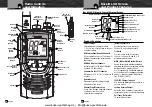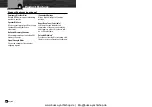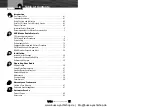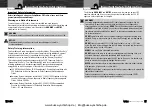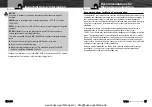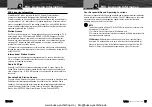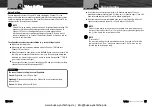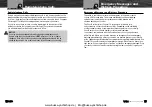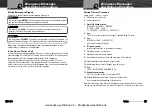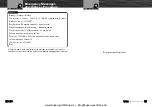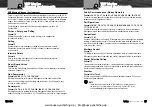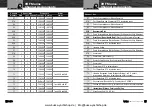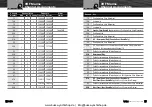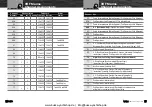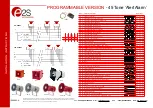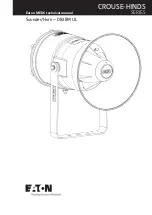
Intro
Operation
Customer
Assistance
Warranty
Notice
Main Icons
Secondary Icons
Caution
Warning
Installation
Customer
Assistance
IIn
nttrro
od
du
uc
cttiio
on
n
5
5
N
No
otth
hiin
ng
g Comes Close to a Cobra
®
4
4
E
En
ng
glliis
sh
h
Intro
Operation
Customer
Assistance
Warranty
Notice
Main Icons
Secondary Icons
Caution
Warning
Installation
Customer
Assistance
IIn
nttrro
od
du
uc
cttiio
on
n
Intro
Operation
Customer
Assistance
Warranty
Notice
Main Icons
Secondary Icons
Caution
Warning
Installation
Customer
Assistance
Introduction
Recommendations for
Marine Communication
Important Safety Information
Introduction
NOTICE
Your radio is waterproof only when the antenna and batteries are properly
installed.
AVOID using or storing the radio at temperatures below -4˚F (-20˚C) or above
140˚F (60˚C).
KEEP your radio at least 3 ft (0,9 m) away from your vessel’s magnetic navigation
compass.
DO NOT attempt to service any internal parts yourself. Have any necessary
service performed by a qualified technician.
This radio is supplied with an NiMH (Nickel-Metal Hydride) rechargeable battery
pack.
■
Use only the Cobra charger to recharge NiMH battery in the radio.
■
Do not short circuit the battery pack.
■
When replacing the battery, dispose of the old battery properly. The NiMH
battery may explode if disposed of in a fire.
Changes or modifications to your radio MAY VOID its compliance with FCC (Federal
Communications Commission) rules and make it illegal to use.
Recommendations for Marine Communication
•
The frequencies your radio uses are set aside to enhance safety afloat and for vessel
navigation and operational messages over a range suitable for nearshore voyages. If
the 5 watt maximum output of your radio is not sufficient for the distances you
travel from the coast, consider installing a CobraMarine fixed mount radio with up to
25 watts of output power. (Visit www.cobra.com or your local dealer for model
availability.)
If traveling far offshore, you should consider adding even more powerful radio
equipment such as HF single side band or satellite radio for your vessel.
The U.S. Coast Guard does not endorse cellular telephones as substitutes for marine
radios. They generally cannot communicate with rescue vessels and, if you make a
distress call on a cellular telephone, only the party you call will be able to hear you.
Additionally, cellular telephones may have limited coverage over water and can be
hard to locate. If you do not know where you are, the Coast Guard will have difficulty
finding you if you are using a cellular telephone.
However, cellular telephones can have a place on board where cellular coverage
is available — to allow social conversations and keep the marine frequencies
uncluttered and available for their intended uses.
www.busse-yachtshop.de | [email protected]


